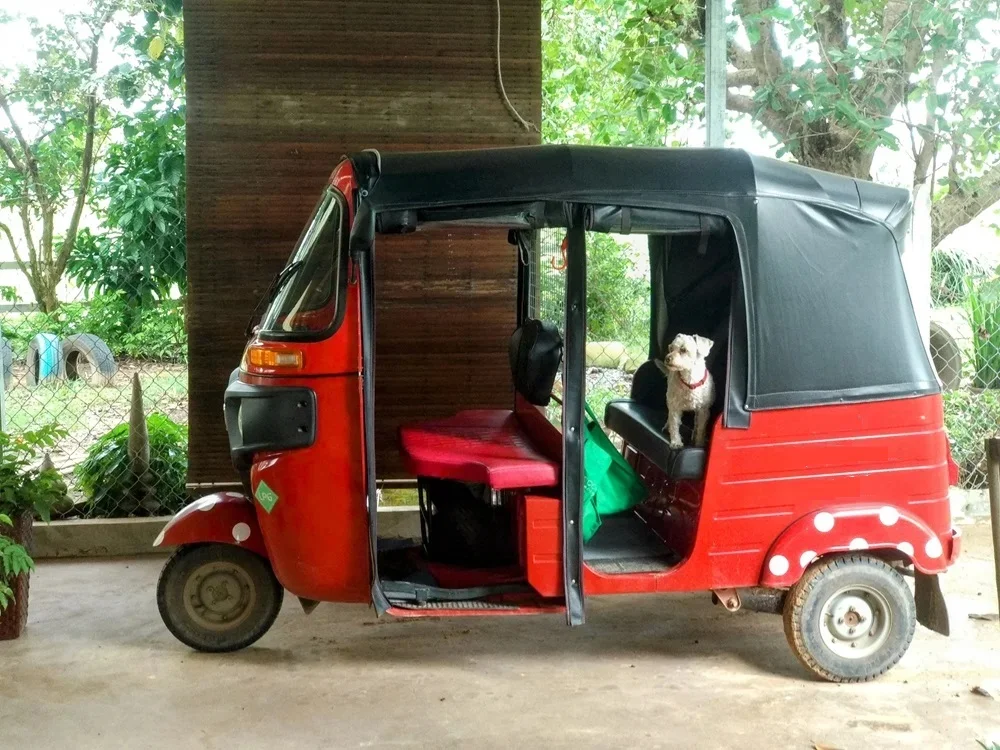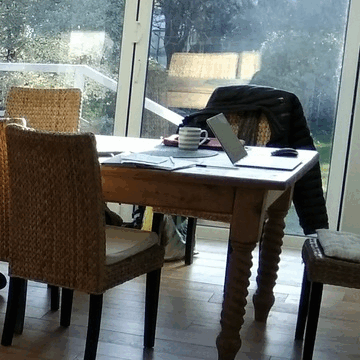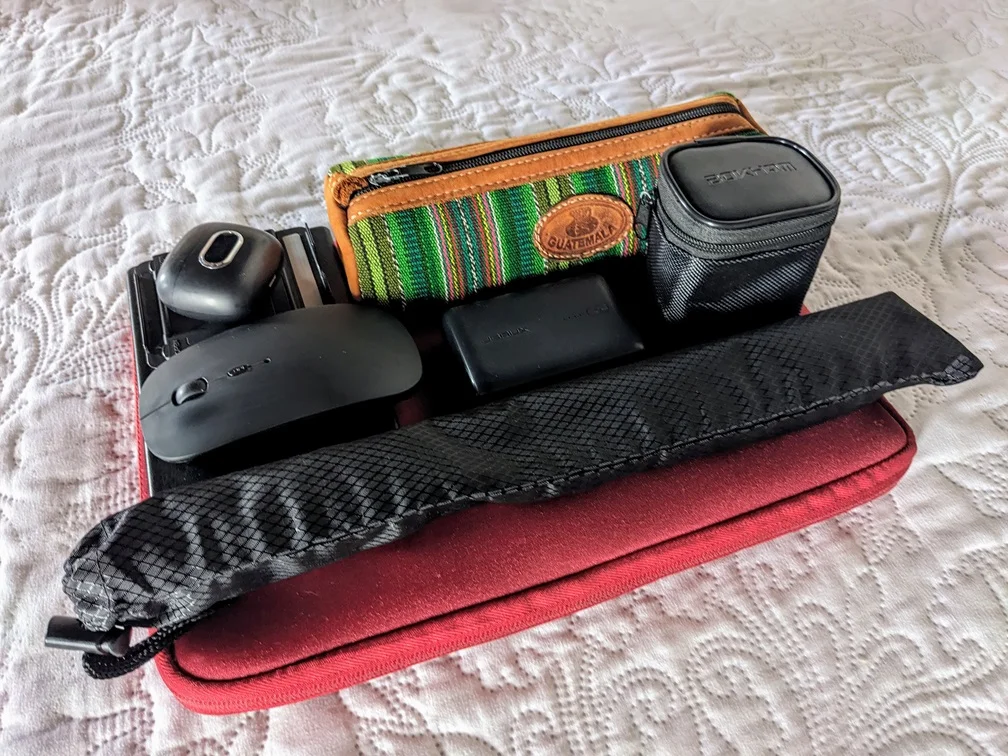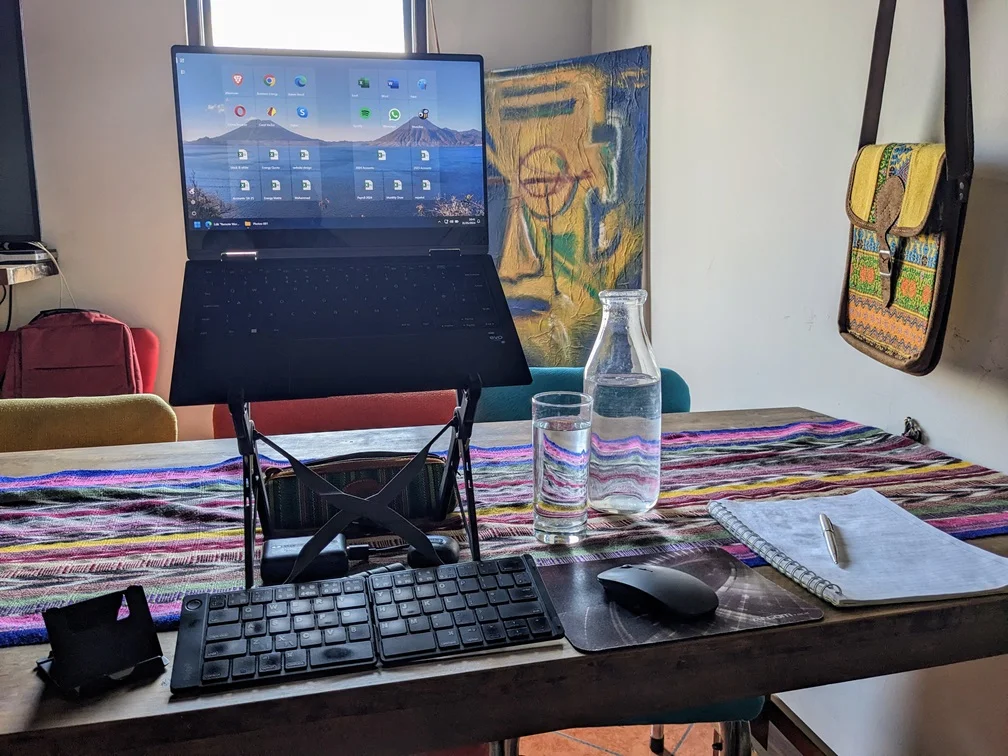
As a self-employed UK freelancer since 2013, my initial remote working experience was being based at home. I couldn’t justify the cost of an office, and remote working spaces weren’t as prevalent as they are now.
Compared to working in an office, remote working is different but still requires many of the same skills: time-management, listening, clear communication, professionalism, self-discipline, and accountability.
Remote working has been a growing trend; sped up by wireless and mobile internet, plus improved software access for individuals and small businesses to leverage enterprise-level solutions. Your circumstances will dictate which software best meets your needs and may require researching what’s available.
Benefits
Before getting into specifics, what’s your ‘Why’? Perhaps an improved work-life balance with more flexibility will allow you to live a lifestyle you want; doing work you enjoy that affords you the flexibility to experience life on your terms, such as travelling the world whilst working.

Maybe, you want/need to save time and/or money; with the obvious benefit of not commuting to work potentially saving hours a day and thousands a year. You may save money by not buying professional clothes as regularly, if at all, or eating out or socialising as often.
As more of an introvert, I prefer my own space but still miss having office colleagues to discuss ideas with, ask for help or hangout with. For extroverts, working remotely may prove more challenging.
Knowing your ‘Why?’ will keep you motivated when you experience challenges that might make you question if you’ve made the right decision to work remotely.
Challenges
As already mentioned, working alone may not suit everyone because some individuals thrive around others. For them, utilising a coworking space can provide a familiar structured office environment coupled with a professional setting for client meetings and collaborations, while feeling more relaxed than its corporate equivalent. The bonus is these spaces, such as Fruitworks and The Trading Post in Kent, provide the flexibility to tailor costs to fit your budget. Although I typically work from home, I utilised a coworking space in Cambodia when the internet wasn’t up to par (this was the case during a housesit near Angkor Wat, which saw me utilising the homeowner’s red and white polka dot tuk tuk as a makeshift office in the car park of an art museum until I discovered a coworking space).


One of the more challenging aspects of working remotely is connecting with potential clients. Once again, technology has made this less of a problem. Whilst social media platforms can extend your reach, the battle for attention is highly congested and, honestly, it can be very time-consuming and exhausting. The ROI may simply not be worth it. I prefer to use social media to learn from others, rather than to win clients, but I still use it to share projects I’ve worked on and blog posts I’ve written. Video conferencing allows for online B2B meetings, and postal marketing has worked well in winning new clients by letting me send sales letters pitching my services from anywhere in the world to UK businesses.
If you base yourself far (particularly, overseas) from family and friends, you may struggle being apart from them for extended periods. Again, this is very much down to the individual but, whilst video calls can’t replace a hug or being with someone in person, technology has shrunk the world and made it easier to stay in touch. Given the range of communication apps, there seems little benefit in mentioning specific ones. The point is to make an effort to maintain important relationships you’re far away from. Time-zones will hopefully prove your biggest obstacle but where there’s a will…
Best Practices
One of the hardest things about working remotely (whether from home or a coworking space), especially as a freelancer rather than as an employee, is being disciplined with your time. It’s much easier to stay in bed when you don’t have to be at the office, check in with a line manager or be monitored by software. And being at home makes it far too easy to be distracted by a multitude of things other than work. Again, your ‘Why?’ should provide the motivation you need to stay focused.
There are certain constraints you need to take into consideration, such as time-zones. This may not be a concern if you don’t need to communicate regularly with clients, partners and/or suppliers but, if you do, you may be getting up earlier or working later than you’re used to. Organise a routine to work for you.
Whether you work from home or a coworking space, it’s important to have a dedicated workspace that suits your needs. I need somewhere quiet and comfortable to sit most of the day but this can be challenging when travelling from place to place (be it housesits or Airbnbs), so I have to accept that my setup isn’t always ideal but it’s a price I am willing to pay for the lifestyle I want.

Tools & Technologies
My office setup needs to be extremely portable and consists of a laptop (Samsung Galaxy Book2 Pro 360), laptop stand, Bluetooth keyboard & mouse, phone (Google Pixel 4a) and wireless earbuds. Additional hardware that has proven indispensable for travelling are a mini-USB C power bank and worldwide travel adapter. All gadgets are USB-C, which keeps cables to a minimum.


After my mobile number was cut-off for a second time by Three because I was overseas for an extended period, I found Devyce offered a solution to make/receive calls to/from UK mobile and landline numbers without the need for a SIM. Devyce lets you send/receive SMS messages, which is perfect for when you need to link accounts to a UK number. I link my personal mobile number to WhatsApp, and a landline business number to WhatsApp Business. This keeps me connected with family, friends and clients. Like WhatsApp, Devyce just needs an internet connection.
I change the SIM to a local Pay-As-You-Go (PAYG) whenever I change countries to ensure I’m always connected, even when away from Wi-Fi. Whilst this setup is more complicated and requires paying different providers (£20/mth in total), it is essential for staying connected with personal and business contacts.
For business, I use Microsoft 365, various Zoho Office Suite applications (CRM, Email and Invoice), and specialised cloud-based solutions.
Accommodation
Keeping a roof over your head so you have somewhere to sleep and, potentially, work is a top priority whoever you are. The difference for remote workers is our options are vastly increased. We’re far less location-dependent, meaning we can go and work where we want, rather than having to live somewhere within commuting distance of work, which gives us a fortunate advantage.
Whenever we return to the UK (as my partner also works online as a Psychologist), we enjoy further good fortune of staying in wonderful homes all over the country because we choose to housesit. This means taking care of a strangers’ homes and their pets whilst they’re away, so there is an added responsibility you have to factor in regarding your work commitments. However, it has worked extremely well for us and, since 2016, we have completed 45 housesits across 4 continents and 13 countries; taking care of hundreds of animals: dogs, cats, fish, farm animals and even alpacas & llamas! If you’d like to learn more about this unique way to travel, slow-packing your way around the world by taking care of friendly pets, visit TrustedHousesitters (if you join, you’ll save 25% and we’ll get 2 free months).

If we will be somewhere for an extended period and housesitting isn’t an option, we will rent somewhere. This worked well for us in Vietnam during the pandemic, and it was lovely to have a place that felt like home during that time. Our monthly rent and electricity cost about $400 USD between the two of us and we lived in an area called Tay Ho (West Lake), which was foodie heaven. Our favourite places were the Vietnamese restaurants serving Phở Bò (beef noodle soup) and Bun Cha (noodles with meatballs). We would cook at home but we ate out a lot because we were spoilt for choice with food from all over the world that was reasonably priced.
When housesits or longer-term rentals are not an option, we use Airbnb and Booking.com but the cost of these is very much location-dependent and prices have increased considerably in recent years. As such, we try to keep these to a minimum to maximise how far our money will take us.
Travel
Wherever you’re based, you’re going to need to utilise transport to either get there and/or around once there. Whilst we have travelled extensively since 2016 (38 countries to date), we prefer to slow-pack our way around the world. This serves several purposes: the first being we can take our time to enjoy and explore a place, without feeling like we have to cram everything into a short space of time. The second is that we keep our flying to a minimum (reducing our carbon footprint and our costs – even more important because flights are a lot more expensive since the pandemic).
Probably the most popular place to search for flights is Skyscanner.net, which finds the best-priced tickets by scanning multiple travel sites. In recent years, international flights no longer include checked-in luggage, so, unless you’re able to pack like a ninja and squeeze everything into your carry-on (and that’s becoming ever more difficult as airlines shrink the allowed size), be prepared to cough up. When flying internationally, the usual advice applies: check what visas you need, how long you can stay and whether you need a return or onward ticket. To get around that last part, there are sites such as Fake Flight Tickets, which does exactly what it says on the tin.
In Germany, we used BlaBlaCar (a car sharing app, ideal for longer distances) to get from Frankfurt to Berlin, and the rest of the time we took the coach using Flixbus because they were incredibly cheap compared to trains. In the UK, coach options include National Express and megabus.
When we’re in the UK, we’ll buy a second-hand vehicle because it works out considerably cheaper than renting over the course of longer timeframes; even if you end up scrapping it. Having our own wheels freed us to do a 3-month tour down to Italy on two-wheels (2017), and a 3-month tour through France, Spain and Portugal on four-wheels (2023). And, yes, we were still working!


In Vietnam, we long-term rented a scooter because everyone rides them in Hanoi. And, honestly, they’re great fun and cheap to run!
The main thing I’ve learned after years of travelling is to pack light because you need less than you think (plus, you can buy suitable clothes wherever you are). Lugging heavy bags is no fun and less so when hot. If you can travel light, I recommend this Travel Backpack (45L).
Health
Keeping fit and healthy is a top priority for many of us. No one enjoys being sick, and even for those of us who do our best to exercise regularly and eat healthily can be struck down by disease or food poisoning. When in your own country, you’ll probably have access to a doctor (though, in recent years, that has become increasingly difficult in England). However, whilst you can still access a doctor overseas (and in most countries, more easily than in Blighty), you might want to consider your Health Insurance options.
Despite Brexit (if you’re a UK citizen), the GHIC has replaced the European Health Insurance Card (EHIC), and whilst treatment may ‘be free or require a payment equivalent to that which a local resident would pay’, it doesn’t replace travel insurance. If you’re going to be away for extended periods, there are companies providing specialist insurance for digital nomads, such as Safety Wing, World Nomads, and Genki.
Staying on top of your vaccinations (tetanus, polio etc.) can be simplified using an app to keep track of when your next immunisations are due. However, the one I used (Vaxini) has since stopped working but my doctor’s surgery advised using the NHS App. For non-UK residents, try to find an alternative app (maybe your national health service has one) or keep a record of your immunisations, as some countries won’t let you in unless you’ve been vaccinated against certain diseases i.e. some African and South American nations require immunisation against Yellow Fever.
Tropical diseases aside, keeping fit can be a real challenge when you’re always on the move. Using a gym might not be straightforward, so maintaining functional movement is a case of learning to stretch and incorporate body-weight exercises. Again, numerous apps can help you but the biggest obstacle to exercising is likely to be yourself. Useful apps include Loop Habit Tracker, Step Tracker (Pedometer), Nike Run Club and MyFitnessPal (Calorie Counter).
Clothing
Clothing varies between individuals; however, every traveller needs to haul their wardrobe (and maybe their office!) around with them, and we soon learnt that less is definitely more, if you don’t want travelling to feel like a constant workout.
Packing light means you’ll need clothing that accommodates warmer and colder weather. Winter clothing can be bulky, so the best advice is to utilise layers that individually can be considered suitable for summer. The only winter clothing I travel with is a merino wool base layer, which barely takes up any space. Yes, merino wool is expensive but it is worth it. The nature of the fabric means it stays fresher for longer; unlike cotton and man-made fibres, which need washing far more regularly. Regardless, it’s good to have separate bag compartments for dirty laundry, and zip-lock bags are a great way to compartmentalise clothing and create more space by expelling unnecessary air. A lightweight (ideally waterproof) jacket, suitable for chilly summer days or as a final winter layer, with numerous zipped pockets (for passport, wallet, phone, gloves etc.) can be fastened on top of your bag for quick and easy access when not wearing.
Convertible – if not particularly fashionable – hiking-style trousers (e.g. Brasher convertible trousers), which zip-off into a pair of shorts, are very practical with their numerous zipped, velcro’d and normal pockets. If you’re in the UK, I highly recommend Go Outdoors for travel clothing and accessories.
Other multi-use lightweight items are a buff (neck warmer / face protector / headwear), and a sarong (quick-drying towel / scarf / pillow).
Take clothes that combine, so it doesn’t feel like you’re always wearing the same thing, which you’ll happily wear again and again. And again. Jeans are heavy, so be sure you’ll get a lot of use out of them if you’re going to lug them all over the world because there’s no reason to be hauling gear around if it’s not being worn often. Dragging a large bag (or multiple bags/suitcases) around is a quick way to make travelling an uncomfortable chore.
Travelling light is one of the best travel hacks which has many benefits: your bag will always be with you on the move (quickly exit airports, coaches & taxis; and no need to worry if you’ll see your bag again); save money by not having to pay for checked-luggage; pack quickly; walk longer distances without getting tired or back/shoulder ache; and look more like a local than an easier tourist-target. Travel lighter, not heavier.
Pounds, Dollars & Euros
Cash, moolah, wonga, readies, bunce, dough, cheddar, bucks or MacGyvers. Whatever you call it, you’re gonna need access to your hard-earned and you don’t want to get caught out with extortionate exchange rates when you’re overseas. Wise provides the best exchange rates (on par with the mid-market rate on xe.com) and you can hold multiple currencies at the same time, meaning you pay the same price as a local.
Wise reduces the cost of spending money overseas and keeps your travel money separate from your main personal account, making it easier to budget for trips.
Useful (Android) Apps
Some (Android) apps you might find useful for business & pleasure:
Calendar Widget syncs and displays events from multiple Google Calendar accounts. Notifications ensure you never miss a phone or video call appointment, and you’re always where you’re meant to be.
Journey is great for diarising thoughts and photos of places you’ve visited, with an interactive map for a trip down a global memory lane.
Google Translate has helped me converse all over the world with foreigners, and Rocket Spanish has helped me say more than just ¡Hola!
Libby keeps me connected to the library and lets me borrow (digital and audio) books for free for both business and personal interests.
Google Maps can keep track of where you’ve been (not everyone’s cup of tea but Timeline is useful from a travelling perspective as it inserts Google Photos to create a diary of events. If the standard 15GB option isn’t sufficient, there are reasonable upgrade options with Google One.)
Seterra is an absolute must if you want to improve your geography skills. Test your knowledge of countries, capitals, oceans and flags!
Final Thoughts
Remote working has changed the world of work for many individuals, couples and families by creating a whole new frontier. What works for some may not work for others but, regardless, this is a trend that is set to continue as society evolves from The Industrial Age into The Information Age. Whether this brave new world will be more dystopian or utopian, only time will tell.
Read fascinating but controversial views of where HUMaNiTY may be heading in The AI Revolution: The Road to Superintelligence and The Sovereign Individual